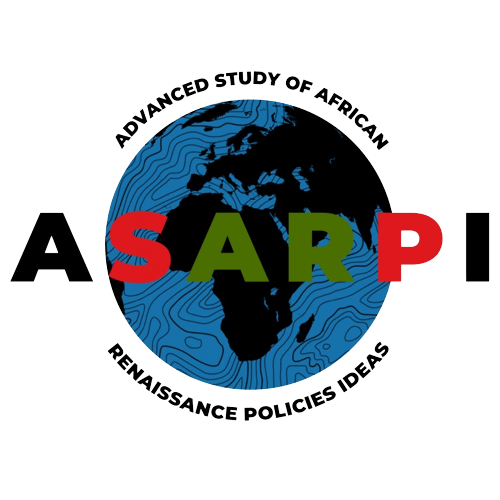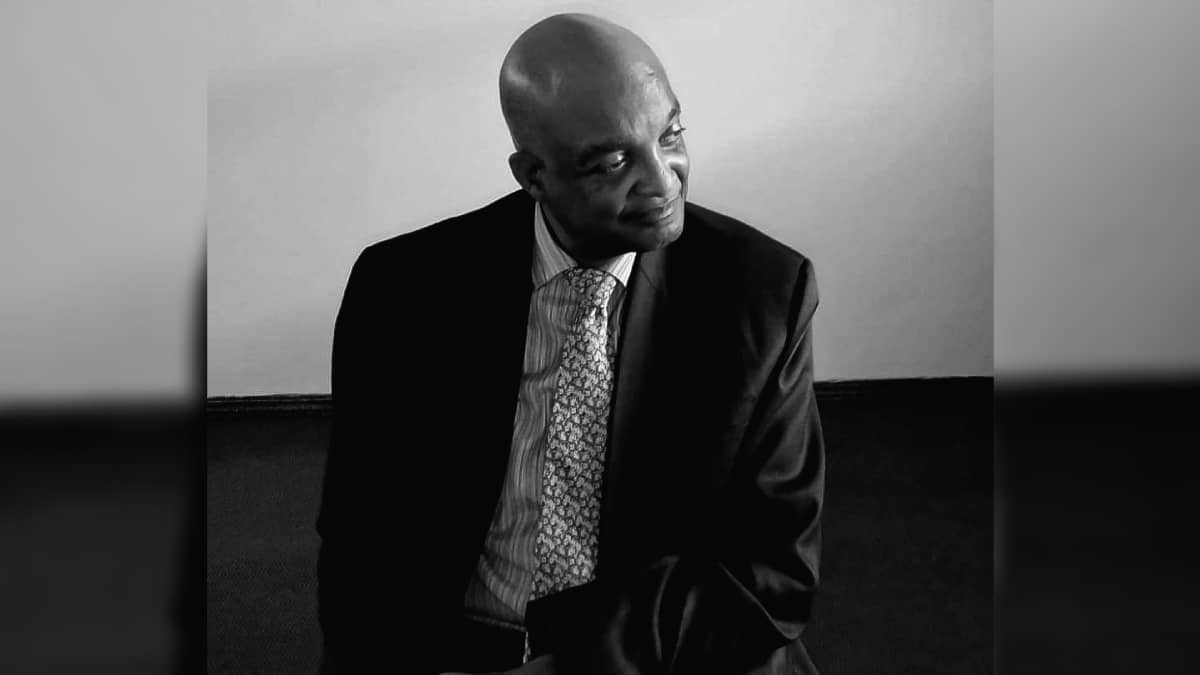The NUST TVET Conference, Windhoek, Namibia
The Coming NUST TVET Department RCIE: Its Potential Meaning in the Global South and World
Professor Dr. John Huston Stanfield
GFA/GIZ Senior International Consultant
Director, ASARPI
asarpi.org
Online Presentation
Good afternoon, two hours ahead of you, my colleagues in Namibia, greeting all of you from idyllic Mauritius. As graciously said, my name is John Stanfield, the founding Director of ASARPI: The Advanced Study for African Renaissance Ideas, asarpi.org. ASARPI is a non-aligned, hybrid, mostly virtual, Pan-African, and growing Pan-Asian policy advocacy think tank, headquartered in Mauritius with branches in Botswana, Namibia, and South Africa, and soon to be in The Gambia, China, India, and Vietnam. We do most of our work through hybrid and mostly virtual Study-Practice Groups, which bring together multiple, deeply networked stakeholders from public, private, and grassroots communities sectors, to break out of their silos as they address a particular pressing public policy problem. Coming out of my decades of concern about the complexities of vocational education, in relation to other areas of higher education, for the past year, we have been engaged in the effort to incubate a research centre in Africa focused on what has commonly been called TVET. It is through this effort, I have had the pleasure of meeting Dr. Kloppers, NUST administrators, and numerous Namibia-based TVET leaders, as well as in the five other African countries engaged in our Study-Practice Group such as in my own adopted homeland Mauritius, such as Dr. Arvind, who I understand, did a smashing Conference keynote on the critical matter of inclusion in TVET policies and outcome practices. We are a movement, an identity, as well as an organized think tank. Our core values include transparency, honesty, the pursuit of truth, ingenuity, and spirituality.
It is my honour to be here through the invitation of Dr. Leena Kloppers, Head of the NUST TVET Department at towards the end of this important three day multilevel, and multidimensional, conversation on what is commonly called TVET but I prefer to call Diverse and Inclusive Education and Employment/ Entrepreneurship Skills in the African region of The Global South, in which Namibia is a star in policy design and implementation, with the urgent need to be a light to glow even brighter and quickly, not only for this great nation, but also for the continent and for the world.
With immeasurable appreciation, this project of which I was appointed July 25th to September 20th, as a 35 working days Senior International Consultant, was contracted through GFA Hamburg, Germany, and GIZ Namibia for the Namibia University of Science and Technology (NUST), Department of TVET. The project being the Conceptualisation of the NUST TVET Research Centre for Innovation and Entrepreneurship (RCIE). Once this report becomes public, when your eyes can finally at least skim the pages I am hopeful there will be widespread agreement that its boldness rooted in the numerous, deeply appreciated, stakeholders within and outside NUST in industry, government, academia, and in grassroots civil society whom I consulted, that the RCIE vision, structure, and operations align well with the new global dawn rising of Africans, like our Asian brothers and sisters, taking our long overdue worldwide places at the dinner table of core power and privilege. It is up to us now to rise or fall.
As the pages of the RCIE report will confirm, once reaching the public sphere, RCIE will do something and do it well only with sustainable bold Centre leadership, which is grounded in norms of democratic management providing incentives and venues for courageous thinking and doing, in internal decision-making. And in reaching out to local, regional, national, and global stakeholders to engage them and encourage them to offer out of the boxes, and new boxes, teaching and learning methodologies for more effective learner employment and entrepreneurship readiness and lifelong mobility in their education and skills development pursuits. This is especially where Brazilian, USA, and other global best practices are applied here, and elsewhere in Africa, in culturally relevant ways, vocational educational credentials leading to transfer credits translated into pursuing undergraduate and postgraduate degrees. The plumber with a certificate or diploma one day becomes a PhD in mechanical engineering. The certificate-holding cook who one day walks down the aisle to receive a PhD in food science chemistry. RCIE as a place to become the global African place to do, promote, and publish for multiple audiences, from the poorest to the most elite policy makers, scholarship of theoretical and applied research, scholarship of teaching and learning, and scholarship of indigenous community engagement and intellectual property protection.
And all of this is done not solely as a cloistered research centre. Rather, RCIE is decentralized in local Windhoek communities, and in North, Central, and South regional locations as venues for offering how to do this and that workshops to local people interested in developing employment and entrepreneurship skills, with impact evaluation ongoing all the time.
Besides the obvious sustainability needs for RCIE to have an ambitious creative fundraising strategy, and to have a supportive facilitative university research infrastructure in areas such as research in human resources recruitment and retention, there needs to be a vibrant, multiculturally competent Office of Evaluation which evaluates, analyses, and publishes quarterly, annual, and special reports for continent and global stakeholders, and especially for public, private, and nonprofit stakeholders in Namibia.
Another RCIE sustainability need, lest it is swept under the societal rug, is to have entry into the office of the National President in a central way that the report lays out. Just wait until you see what is recommended!
A big sustainability concern is diversity and inclusion, and RCIE must address this matter in its own internal affairs and by engaging stakeholders. No matter your private feelings and attitudes about including historically under-represented demographic populations in your institution, take your pick, e.g. age, gender, disability, religion, tribe, etc., empirical studies have demonstrated that diversity and inclusion, not only for moral and justice reasons, but for enrichment in internal learning and work environments and abilities to get along well in the world, beyond local environments, the more diverse and inclusive an internal institutional environment is from the bottom to the top, the more productive and enriching life soft skills it offers. This will be the RCIE diversity and inclusion policy of engagement with stakeholders within and outside NUST locally, regionally, nationally, and globally, as well as in operations.




While slide 1, the title page, introduces the project title and its author, and acknowledges GFA/GIZ funding sponsorship, the purpose of slides 2, 3, 4 is to make it clear this NUST TVET RCIE project is part of a broader ASARPI “TVET” Study-Practice Group: “The Global South: Diverse and Inclusive Education and Employment/ Entrepreneurship Skills.” It symbolizes the urgent need to put Namibia TVET issues not only in African, but also in broader Global South contexts. This is since though Africa and Namibia within it, share important global North &South commonalities such perceived, less than negative attitudes about vocational education, and the chronic unevenness of TVET teachers and curricula: there is in the Global South, and among Global South peoples in the North, the additional racist /colonized stigma of being subjected systematically to inferior, indeed obsolete, and too often over-priced vocational education forms and contents in contrast to Eurocentric dominant forms and contents of vocational education and synergies or absence thereof with liberal arts and professional higher education.
The ASARPI “TVET ” Study Practice Group is organizing an edited volume project, which we hope will be a joint venture with other Global South public and private sector and grassroots communities, including collaboration with the emerging NUST TVET RCIE as it begins to move forward, that is, as the report suggests, begins to act like a forging partnerships research centre. Namely, this will be the ASARPI “TVET” Study-Practice Group Edited Volume Project entitled: “The Global South: Diverse and Inclusive Education and Employment/ Entrepreneurship Skills.” We are looking for papers from all sectors and communities.
Call for 1 page 12 font abstracts and 400 words bios. Deadline: February 20, 2026. Email: stanfieldsci@gmail.com
The third slide has a recent comparative contract proposal in another part of the Global South, with appendices providing details of other “The Global South: Diverse and Inclusive Education and Employment/ Entrepreneurship Skills” projects in Namibia and in the Caribbean that you can download once you get home, to get a sense of the ASARPI approach to this vital Global South matter as also illustrated in me having the privilege of being appointed as the GFA/GIZ Senior International Consultant for Conceptualising the NUST TVET Research Center for Innovation and Entrepreneurship.
Thank you for your kind consideration to have me come.
Bio
Professor John H. Stanfield II is the Founding Director of ASARPI: Advanced Study of African Renaissance Policies Ideas globally headquartered in Mauritius; a nonaligned, hybrid, mostly virtual, Pan-African and growing Pan-Asian, policy advocacy think tank with a branch in Windhoek where he is also a property owner. He was the 2019-2020 University of Mauritius SSR Chair of African Studies and other senior prominent comparative historical sociologist of knowledge, restorative justice, and practical theology appointments in African and African Diaspora Studies and Policies such as in Yale, William & Mary, University of California, Indiana University, PUC Rio, University of Sierra Leone, University of London SOAS, South Africa Human Sciences Research Council, and U.S. Ambassador’s Distinguished Scholar in Ethiopia. A “Who’s Who Evaluator,” award-winning author of articles and books on social sciences research methods and their cultural contexts and political uses. A designer of research institutes in Africa and in the African Diaspora to combat the cognitive, sociopolitical and economic foundations of inequalities from grassroots to elite institutions and communities. At age 25, Northwestern University Sociology PhD and later, Masters of Sacred Theology-Boston University USA.

